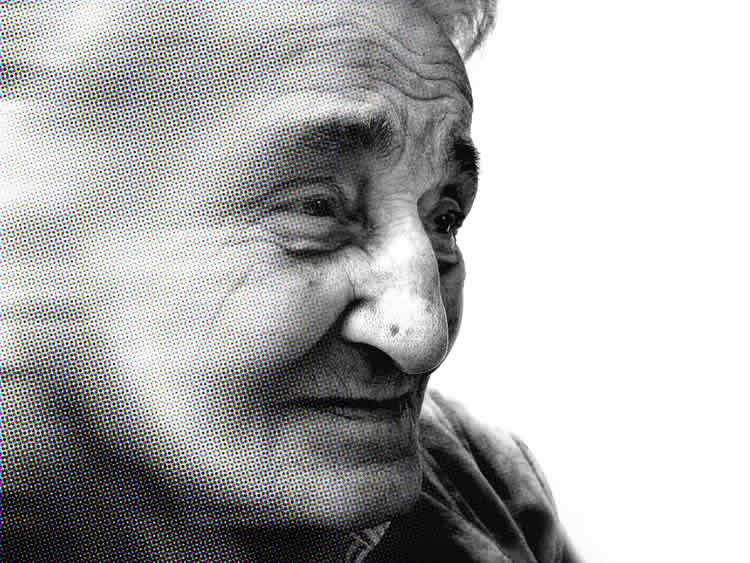Summary: A new study reports poor physical performance is linked to an increased risk for developing dementia in people aged 90 and older.
Source: AGS.
The number of people living well into their 90s is projected to quadruple by 2050. By mid-century, nearly 9 million people will be 90-years-old or older. In a first-of-its-kind study published in the Journal of the American Geriatrics Society, researchers from the University of California at Irvine examined whether four different measures of poor physical performance might be linked to increased dementia risk for people aged 90 and older.
Previous studies have shown that poor physical performance is linked to increased odds for dementia in people younger than 85. But until now, we didn’t know whether a link between poor physical performance and dementia existed for people 90 and older.
The researchers examined 578 people aged 90 and older who were participants in The 90+ Study, a community-based longitudinal study–a research method that follows the same subjects repeatedly over a period of time–of the oldest-old in Southern California. Examiners see the participants every six months to conduct physical and neurological (the branch of medicine dealing with the study of nerves and the nervous system) examinations as well as cognitive tests, with the goal of looking critically at aging and dementia specifically.

At the start of the study, about 50 percent of the participants were cognitively impaired (had trouble thinking or remembering), but did not have dementia. The rest were cognitively normal. Researchers followed the participants for 2.6 years and, during that time, almost 40 percent of participants developed dementia.
The researchers observed a unique link between dementia risk and poor performance on two different physical performance tests: the standing balance test and the four-meter (about 13 feet) walking test.
The researchers suggested that, since walking and standing balance require complex brain activity, testing these functions may help doctors predict who among the “oldest-old” might be most at risk for developing dementia. The researchers also note that future studies could lead to the development of prevention programs and treatment strategies.
Source: Daniel E. Trucil – AGS
Image Source: This NeuroscienceNews.com image is in the public domain.
Original Research: Full open access research for “Sound Body Sound Mind? Physical Performance and the Risk of Dementia in the Oldest-Old: The 90+ Study” by Szofia S. Bullain, MD; Maria M. Corrada, ScD; Shawna M. Perry, MS; and Claudia H. Kawas, MD in Journal of the American Geriatrics Society. Published online July 5 2016 doi:10.1111/jgs.14224
[cbtabs][cbtab title=”MLA”]AGS. “Poor Balance in Older People May Signal Elevated Dementia Risk.” NeuroscienceNews. NeuroscienceNews, 25 July 2016.
<https://neurosciencenews.com/balance-dementia-risk-aging-4732/>.[/cbtab][cbtab title=”APA”]AGS. (2016, July 25). Poor Balance in Older People May Signal Elevated Dementia Risk. NeuroscienceNews. Retrieved July 25, 2016 from https://neurosciencenews.com/balance-dementia-risk-aging-4732/[/cbtab][cbtab title=”Chicago”]AGS. “Poor Balance in Older People May Signal Elevated Dementia Risk.” https://neurosciencenews.com/balance-dementia-risk-aging-4732/ (accessed July 25, 2016).[/cbtab][/cbtabs]
Abstract
Sound Body Sound Mind? Physical Performance and the Risk of Dementia in the Oldest-Old: The 90+ Study
Objectives
To examine the longitudinal association between physical performance and risk of dementia in individuals aged 90 and older without dementia.
Design
Population-based longitudinal study.
Settings
The 90+ Study, Laguna Woods, California.
Participants
Men n = 176 and women n = 402 without dementia from The 90+ Study (n = 578, mean age 93.3). At baseline, 54% of participants were cognitively normal, and 46% had cognitive impairment, no dementia.
Measurements
Physical performance measures (4-m walk, 5 chair stands, handgrip, standing balance) were scored from 0 (unable to perform) to 4 (best performance). The outcome was dementia, diagnosed according to the Diagnostic and Statistical Manual of Mental Disorders, Fourth Edition, criteria. Hazard ratios (HRs) for dementia in relation to baseline physical performance were estimated using Cox regression after adjustment for potential confounders. HRs and P-values for the overall Wald chi-square are reported to show the magnitude of each physical performance measure and the strength of the association between each measure and incident dementia.
Results
Poor physical performance in most measures was associated with greater risk of incident dementia over a mean follow-up of 2.6 years (range 0.6–9.0 years). After controlling for potential confounders, standing balance had the strongest association with incident dementia (HRs = 1.9–2.5, overall P = .02), followed by 4-m walk (HRs = 1.1–1.8, overall P = .04) and handgrip (HRs = 1.0–2.0, overall P = .03). The association with five chair stands was not significant. In a subanalysis limited to cognitively normal participants, HRs were attenuated, but most remained in the same direction.
Conclusion
Poor physical performance is associated with risk of developing dementia over an average 2.6-year follow-up in the oldest-old, indicating that poor physical performance may be an early sign of late-age dementia.
“Sound Body Sound Mind? Physical Performance and the Risk of Dementia in the Oldest-Old: The 90+ Study” by Szofia S. Bullain, MD; Maria M. Corrada, ScD; Shawna M. Perry, MS; and Claudia H. Kawas, MD in Journal of the American Geriatrics Society. Published online July 5 2016 doi:10.1111/jgs.14224






